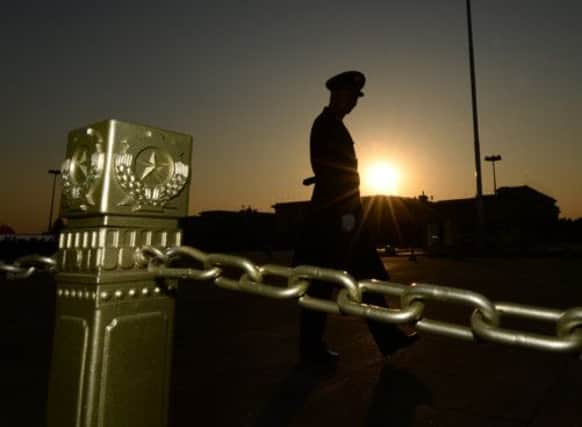China: Markets king but party reigns supreme


China aims to achieve “decisive results” by 2020, with reforms focused on the economy, the ruling Communist Party said yesterday in a communiqué released at the end of a four-day conclave of its 205-member Central Committee.
The self-imposed deadline for progress – rare for Beijing to lay out in such clear terms – together with the creation of a top-level working group and an emphasis on “top-level design”, suggest a more decisive reform push under president Xi Jinping and premier Li Keqiang than under the previous leadership.
Advertisement
Hide AdAdvertisement
Hide AdThey must unleash new sources of growth as the economy, after three decades of breakneck expansion, begins to splutter, burdened by industrial overcapacity, debt and eroding competitiveness.
“You should look back in history. When Deng Xiaoping started the reform and opening movement, he actually did something very similar in nature, creating a very powerful working group,” said Steve Wang, China chief economist with the Reorient Group in Hong Kong.
“These guys report direct into the power centre of the Communist Party. This is not something to be looked at as another layer of bureaucracy, this is something to speed things up, to make things more efficient.”
While the statement was short on details, it is expected to kick off specific measures by state agencies over the coming years to gradually reduce the role of the state in the economy.
Historically, such third plenary sessions of a newly installed Central Committee have acted as a springboard for key economic reforms, and the follow-up meeting will serve as a first test of the new leadership’s commitment to reform. While the party effectively upgraded the importance of markets in its philosophy – previous policy statements often described markets as playing only a “basic” role in allocating resources – it also made clear it had no plans to radically reduce the role of the state in the economy.
State-owned enterprises will continue to play a leading role, even while the government creates more room for private enterprise by opening up more industries to private capital, it said.
Among the issues singled out for change, the party said it would work to deepen fiscal and tax reform, establish a unified land market in cities and the countryside, give farmers more property rights, and develop a sustainable social security system – all seen as necessary for putting the world’s second-largest economy on a more stable footing. Currently a rigid residence registration system is preventing people moving from the countryside to urban China, thus stopping migrants becoming full-fledged urban dwellers and consumers. Entitlement to public services such as pensions, health and free schools are also linked to home villages and towns. Restrictions on farmers selling their land also impede this process, seen as necessary for the growth of a more consumer-led economy.
The push towards a greater role for markets in the financial sector and reforms to public finances was viewed by commentators on social media as lacking in detail.
Advertisement
Hide AdAdvertisement
Hide Ad“What is there to be said about the third plenum? Having read it, it feels like not having read it at all – there are no details, no regulations,” said one poster named Yu Chunxi.
Even with its new focus on co-ordination of reform efforts, Beijing will face stiff resistance from those who benefit from the status quo – powerful heads of state companies to local officials who can benefit, often through corruption, from the current focus on land sales and infrastructure investment.